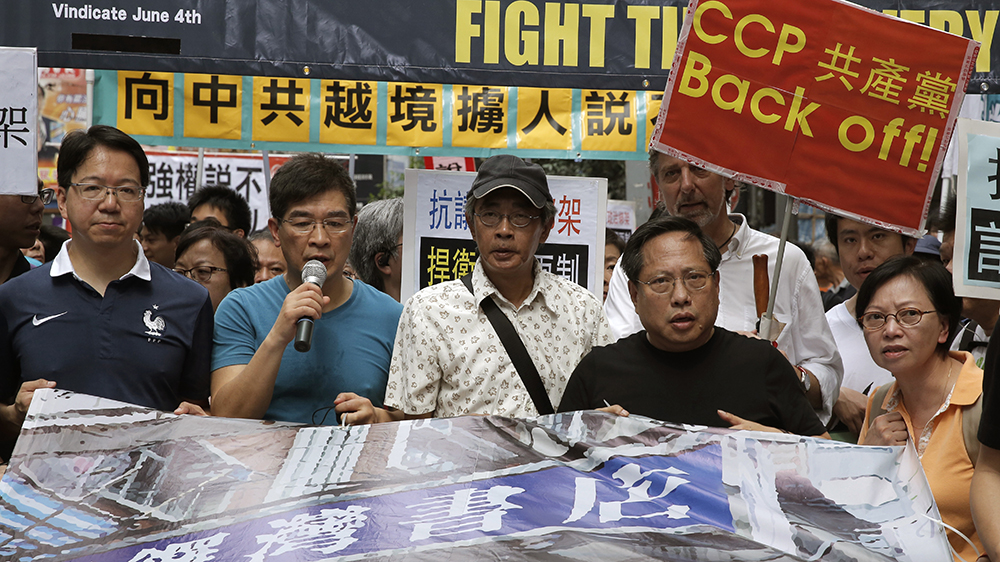




The ruling Chinese Communist Party says one thing and does another when it comes to Hong Kong, often acting in ways that are inconsistent with the city's promised freedom to govern its own affairs, according to a recent policy report issued by the State Department in Washington.
Repeated comments from Chinese officials asserting the supremacy of the Chinese constitution last year served to "dilute" the concept of a "high degree of autonomy" enshrined in the 1984 Sino-British handover treaty and the city's mini-constitution, the Basic Law, the report said.
"While [Beijing] publicly and frequently reiterated its commitment to the 'one country, two systems' framework ... other statements and actions ... were inconsistent with its stated commitment to Hong Kong’s high degree of autonomy," the report found.
For example, China's National People's Congress Standing Committee has required the city to legislate to make "disrespect" of China's flag or national anthem a criminal offense.
Beijing also announced it would apply mainland Chinese law at a high-speed rail terminal checkpoint within Hong Kong's separate jurisdiction, the report said.
The State Department also cited the refusal of entry to U.K. Conservative Party human rights campaigner Benedict Rogers by Hong Kong immigration officials last October, citing U.K officials as saying that it had been carried out at Beijing's instigation.
The report also criticized Beijing for issuing a preemptive interpretation in the row of the validity of oaths of allegiance sworn by newly elected members of the city's Legislative Council.
"As a result of the interpretation, Hong Kong courts disqualified six pan-democratic legislators elected in 2016 for improper oath-taking; two still have appeals pending," it said.
Publishing controls
The report came as a survey found that Beijing's Central Liaison Office in Hong Kong controls more than half the city's publishing industry, with ownership of three major bookstore chains and more than 30 publishing houses in the city.
Sino United Publishing, which was acquired by the Central Liaison Office in 2015, controls more than 80 percent of book sales via its three chains: Joint Publishing, Chung Hwa Book Co. and the Commercial Press.
But the Radio Television Hong Kong (RTHK) survey found that the office also owns or controls more than half of the publishing industry via stakes in more than 30 publishing houses in the city.
Lee Cho-jat, who was the first chairman of Sino, told the station that the group is "a national asset" and the Liaison Office is obliged by Beijing to coordinate "different units."
RTHK's current affairs program "Hong Kong Connection" traced the ownership of Sino United through two holding companies in Hong Kong and Guangzhou, across the internal border in mainland China. The Guangzhou company has only one shareholder: Beijing's Central Liaison Office, the show reported.
While Lee denied any political agenda, Lam Wing-kei, one of five Hong Kong booksellers held in cross-border detentions in 2015 for selling "banned books" to customers in mainland China, dismissed such claims.
"Clearly this is a form of ideological control," Lam said. "Books that are considered politically sensitive or inappropriate will be completely banned."
Lam said the China-owned chains had been loathe to promote books touching on the 2014 Occupy Central movement in Hong Kong.
"They would take delivery of them, and put them in a cupboard, and they would only bring them out if a customer asked for them," Lam said.
"[In some cases] they will actually put out a directive stopping the branches from selling books at all, for example, books that promote localism or autonomy for Hong Kong; they have been totally banned, you can be sure of that," he said.
